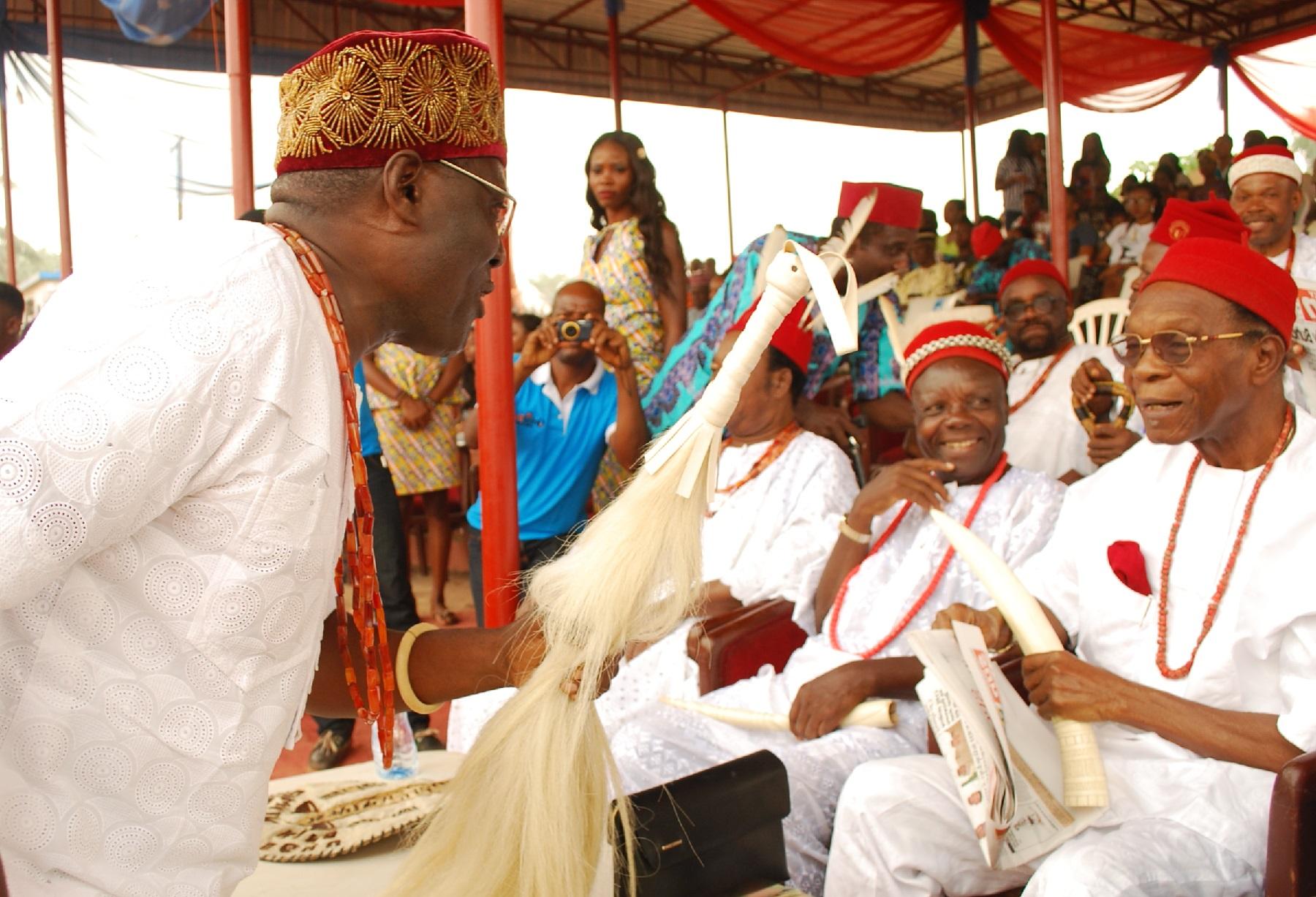The Igbo people, renowned for their rich cultural tapestry, have a heritage that compasses many customs, traditions, and a unique way of life. At the heart of Igbo culture lies the esteemed tradition of title-holding, a practice that bestows honor and respect upon individuals who have demonstrated remarkable accomplishments and capabilities. In this article, we embark on a journey to explore the captivating world of Igbo culture, tradition, and their distinctive way of life.
Title Holding: A Revered Position
Title holders in Igbo Land occupy an enviable and highly respected position within the Igbo community and beyond. While they are not revered as kings, their significance is undeniable. Title holders often carry out special functions entrusted to them by their communities and assemblies. They play an integral role in the customary and governing systems, both within the umunna setting and throughout the entire community.
This unique way of governance sets the Igbo community apart from many other communities in Western Africa, with similarities found primarily among the Ewe people of Ghana. At its core, the umunna system forms the foundation of Igbo society. The Umunna represents a patrilineage, tracing its roots to a founding ancestor, often named after this progenitor. Within the Umunna, groups of compounds house closely related families, each presided over by the eldest male member. The Umunna serves as a fundamental pillar of Igbo society, establishing the principles of law and governance.
A Culture of Diversity
The Igbos, a people of diverse subgroups, boast a culture rich in variety. Their distinctive ways of dressing, dancing, and their deep reverence for elders and ancestral deities define the fabric of Igbo culture. Here, culture extends to encompass every aspect of life, from their delectable cuisine to their melodious music and the unique dialects spoken in different regions.
Dressing: A Tapestry of Tradition
Traditional Igbo attire is a vibrant reflection of their culture. Men often adorn themselves in intricately woven fabrics like the “George” and the “Isi Agu” (lion head) patterned cloth. The Isi Agu, with its distinctive lion’s head motifs, symbolizes strength and bravery. Women, on the other hand, wear elegant wrappers and blouses, often complemented by coral beads and ornate headgear. The choice of attire can also be indicative of one’s status and role within the community.
Dance: A Celebration of Life
Igbo dance is an expression of joy, celebration, and storytelling. The “Ekpe” and “Egwu Oshia” dances are just a couple of examples that showcase the diversity of Igbo dance forms. Each dance is accompanied by rhythmic drumming and enchanting melodies, creating an immersive experience that transcends generations.
Respect for Elders and Ancestral Deities
Respect for elders is deeply ingrained in Igbo culture. Elders are regarded as the custodians of wisdom and tradition, and their counsel is highly valued. Ancestral deities, known as “Alusi” or “Chukwu,” are revered and play a central role in daily life. Offerings and rituals are performed to seek their blessings and guidance.
Cuisine: A Gastronomic Delight
Igbo cuisine is a fusion of flavors and ingredients that tantalize the taste buds. Dishes like “Ofe Onugbu” (bitter leaf soup), “Egusi” soup, and “Jollof Rice” showcase the culinary expertise of the Igbo people. The use of fresh vegetables, palm oil, and local spices creates a unique and delectable gastronomic experience.
Language Dialects: A Linguistic Tapestry
The Igbos are known for their diverse range of dialects, each with its own distinct nuances and expressions. The Igbo language, with its melodic tones, connects people across different regions while preserving the cultural richness of each subgroup.
In conclusion, the Igbo culture is a captivating tapestry of traditions, customs, and a way of life deeply rooted in their history and heritage. Title holding and the umunna system form the cornerstone of their governance, while their culture encompasses a myriad of vibrant expressions, from dance and dress to cuisine and language. Exploring Igbo culture is a journey into a world where diversity is celebrated, and tradition is cherished—a testament to the enduring spirit of the Igbo people.

